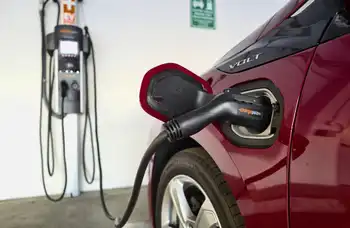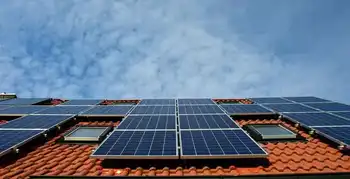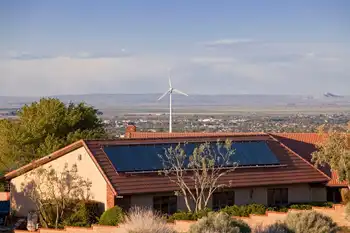German coalition agrees to delay solar cuts
BERLIN, GERMANY - Germany's ruling coalition has agreed to delay cuts in solar power incentives by two months, parliamentary officials said, easing pressure on solar companies which will have more time to sell components.
Support for new rooftop solar installations will be cut by 16 percent from June 1, said Hans-Peter Friedrich, parliamentary group leader for the Christian Social Union (CSU), the Bavarian sister party to Chancellor Angela Merkel's Christian Democrats (CDU). The original plan was to introduce the cuts on April 1.
Solar stocks around the globe gained on the news, with shares in Q-Cells, SolarWorld, First Solar, Suntech, SMA Solar and Yingli all up 1.8 to 4.4 percent.
"It would certainly be positive for the sector if that was the case. The sector would be able to benefit from stronger growth in April, May and June -- a strong seasonal time for installations in Germany," said Ardour Capital analyst Adam Krop.
"It's positive, but still the most important thing is that it's yet another proposal," Krop added.
Critics of the cuts, including members of Germany's ruling parties, have said they could harm the expansion of photovoltaic technology in the world's largest solar market. About half of the world's solar electricity is produced in Germany.
The CSU is one of three parties in Merkel's center-right coalition with the CDU and the Free Democrats, and had called for a delay in the cut to solar incentives. It would be difficult, if not impossible, to pass a law without CSU support.
The so-called feed-in tariffs — prices utilities are obliged to pay to generators of renewable energy — are the sector's lifeline as long as grid-parity, the point at which renewables cost the same as fossil fuel-based power, has not been reached.
Global solar stocks plunged in January when it emerged that the German government was planning to make additional cuts to the feed-in tariffs, arguing the industry is overly subsidized and needed to become competitive much faster.
Friedrich said the coalition still wanted to cut the feed-in tariff for open field solar systems by 15 percent from July 1.
The coalition needs to agree final details on solar cuts, in particular on how to reduce subsidies for larger farmland installations, before sending the bill through parliament.
Related News

Can Europe's atomic reactors bridge the gap to an emissions-free future?
PARIS - Shaken by the loss of Russian natural gas since the invasion of Ukraine, European countries are questioning whether they can extend the lives of their ageing nuclear reactors to maintain the supply of affordable, carbon-free electricity — but national regulators, companies and governments disagree on how long the atomic plants can be safely kept running.
Europe avoided large-scale blackouts last winter despite losing its largest supplier of natural gas, but industry is still grappling with high electricity prices and concerns about supply.
Given warnings from the International Energy Agency that the coming winters will be particularly at risk from a…




